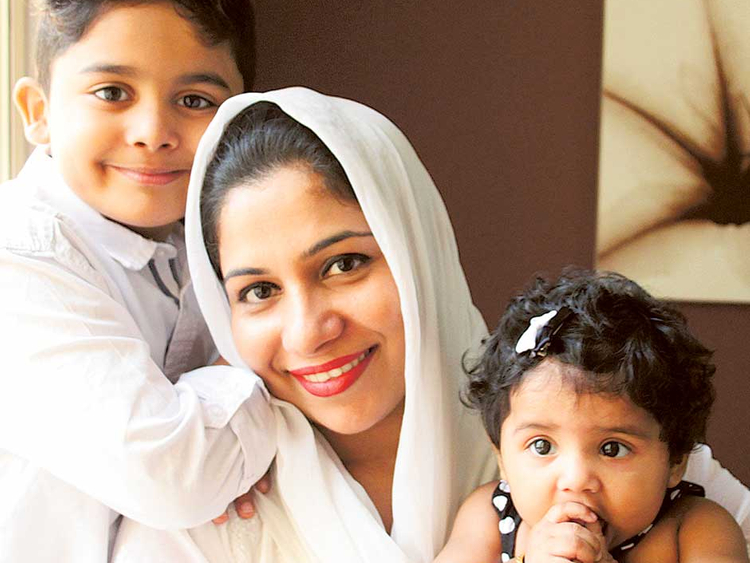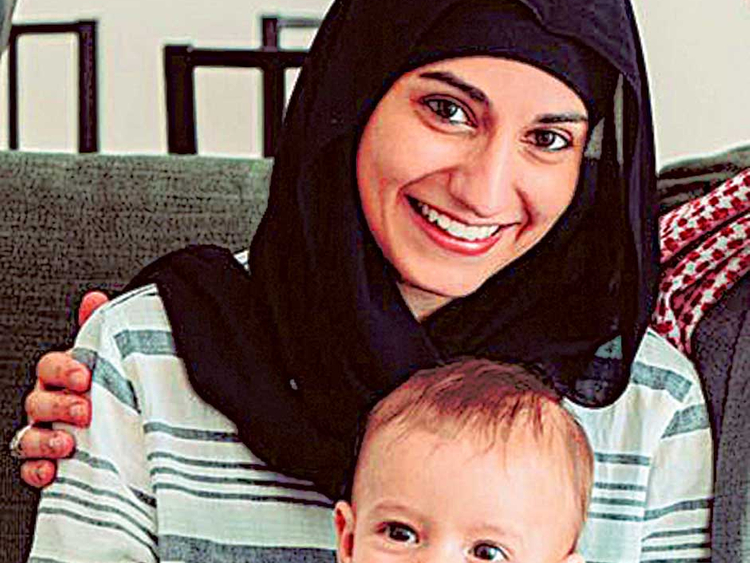Dubai: Almost half (46 per cent) of the UAE’s female population is working, data published by the World Bank in 2014 shows. With more women looking to maintain a long-term career while raising a family, the topic of maternity leave has been in the news. Many countries in the region offer mothers around 45 days of maternity leave, while other countries such as Sweden and Serbia offer mothers at least one year of paid maternity leave.
Things in the UAE too are looking to change.
The UAE provides working mothers in the public sector a two-month maternity leave, and 45 days for those working in the private sector. However, several emirates are currently reevaluating the importance of maternity leave and amending their laws. Recently, President His Highness Shaikh Khalifa Bin Zayed Al Nahyan issued a law on Human Resources that states a three-month paid maternity leave for Emirati working women in the Abu Dhabi public sector and a three-day paternity leave for male government staff.
Flexible timings
The law also gives women the right to leave two hours early for one year from the day of giving birth as compared to the previous provision of one hour.
Gulf News also reported that the UAE has recently formed a national committee to review the country’s maternity leave laws. Headed by Shaikha Manal Bint Mohammad Bin Rashid Al Maktoum, president of the UAE Gender Balance Council and Dubai Women’s Establishment (DWE), the committee aims to work on activating the Gender Balance Index across various sectors in the UAE.
The committee also aims to promote gender equality through encouraging female participation.
Looking into flexible timings for working parents could be the next step many companies are willing to take. Though not as high as in other countries, the ratio of women in the UAE workplace has grown by 63 per cent between 1993 and 2013, a study by international consulting firm AT Kearney shows.
According to a Gulf News report, Manpower Group, a US-based consulting firm, estimates that it usually costs a company 1.5 times an employee’s salary to replace them.
Can a short maternity leave lead to the baby blues?
Guilt and depression are some of the common feelings new mothers experience when they have to return to work shortly after giving birth, said a clinical psychologist.
Roghy McCarthy, clinical psychologist at Counselling and Development Clinic in Dubai, told Gulf News she believes a mother needs at least one year to recover mentally and to adjust to her new role.
“A mother may physically recover around six weeks after birth, but she needs time to naturally connect with her baby, and to breastfeed while holding him/her in her arms,” said Dr McCarthy.
She explained that the first year is crucial to form a mother-baby bond.
“I strongly believe that breastfeeding is magical for both the mother and baby. This is something a working mother will miss out on as she might chose to not breastfeed or to pump her milk into a bottle that is then given to the child by the carer,” Dr McCarthy said.
Proven remedy
She referred to studies that have proved that mothers produce milk by just holding their children close, emphasising the importance of emotional closeness during the first year.
When it comes to the baby blues or a popular condition known as postpartum depression, breastfeeding has proved to be a remedy, said Dr McCarthy.
Many mothers may experience baby blues after the seventh day of delivery. “The baby blues happen due to the changing hormones after delivery that can cause a mother to be emotional, crying often and a little moody,” she said.
She added that while no treatment is needed for the baby blues, family and friends’ support is key to helping a new mother feel more at ease after giving birth.
Unlike the baby blues, a more serious condition affecting mothers worldwide is postpartum depression.
The condition involves a similar syndrome to baby blues but continues for longer than two weeks. Considered a clinical type of depression, symptoms of postpartum baby blues can include low energy, sadness, changes in sleeping and eating patterns and high anxiety levels. She pointed out that many expats living in the UAE are not surrounded by family or close friends who can offer support after delivery. This can cause a mother to spiral from a case of the baby blues to a more severe level of postpartum depression.
She highlighted the need for awareness about the importance of a longer maternity leave period for mothers in the region. “A mother is responsible for another human being, and is completely dependent on when that baby sleeps, eats and plays,” she said.
“I strongly believe that a healthy society is based on a healthy family, and a healthy family is based on healthy parents,” she said.
Maternity leave laws in the UAE:
When it comes to working mothers in the UAE, the decision of having a baby and continuing to work is one of the hardest to make. The UAE law provides pregnant women working in the private sector 45 days’ maternity leave and those in the private sector 60 days off.
According to the Ministry of Human Resources and Emiratisation, Article 30 of the federal law states that women employed in the private sector are entitled to 45 days of maternity leave, which includes the period before and after the delivery. The employee will receive full pay provided she has served continuously for not less than a year. The maternity leave is granted with half pay if the woman has not completed one year of service.
At the end of the maternity leave, a working woman has the right to extend her leave for a maximum period of l00 days without pay from the start date of the maternity leave. This unpaid leave can be continuous or interrupted, if the interruption is caused by illness, which prevents her from coming to work. The illness must be confirmed by a certified government physician licensed by the competent health authority. A working women is also entitled to extend her maternity leave by applying for her annual leave provided her employer approves the request.
Maternity leave in either of the above cases is not deducted from any other leave that a female employee is entitled to.
During the 18 months following delivery, a woman employee working in both the private and public sectors who nurses her child, has the right to have two daily intervals, which do not exceed half an hour each, for the purpose of nursing her child. These additional intervals are considered part of her working hours and no deduction in wages can be made.
When it comes to working mothers in the public sector, the Dubai Government Human Recourses Management Law No 27 of 2006, Article 126, states that permanent women employees are entitled to paid maternity leave of 60 days. The maternity leave may be combined with annual leave or unpaid leave up to a maximum of 100 days from the start date of the maternity leave. The law also states that pregnant women employees may take maternity leave up to one month prior to the expected date of delivery. Weekends and holidays occurring during maternity leave are part of this leave, while weekends and holidays occurring at the beginning and/or end of the maternity leave will not be considered as part of maternity leave. The duration of the maternity leave may not be carried forward to the next year, and employees shall never be paid in cash in lieu of maternity leave. Benefit accumulations such as annual leave, air ticket, and end of service shall continue during the approved maternity leave period.
Paternity Leave
When it comes to working fathers’ right to spend time with their babies, the UAE law does not provide paternity leave for employees working in the private sector.
However, for those working in the public sector, Article (127) of the same law states that male employees whose wives have had a baby inside the country are to be granted three working days paternity leave with full pay to be taken during the first month of the baby’s birth.
Struggles of a working mother:
“Maternity leave should be at least three months,” said single mother Parveen Ayesha, 34, from india.
The geo-technical project manager said she faced health complications after her C-section surgery and needed more than a month to recover after having her baby girl in March 2016.
“The 45 days pass by very quickly, as the mother needs time to recover and, once she’s feeling better, she has a very short time to sort out the documentation process for her baby,” said Ayesha.
The mother of two said the law should provide working mothers a minimum of three months’ maternity leave.
“As soon as you’ve settled with the baby, it’s time to go back to work and the baby’s routine is disturbed and life gets hectic from there,” said Ayesha.
Living in Dubai and working in Sharjah, Ayesha said she isn’t able to make use of the two half-hour nursing breaks she is given at work because of the traffic between the two emirates.
“I thought about clubbing both nursing breaks with my lunch break so that I have two hours to go home and nurse my baby, but then I realised I would be spending one and a half hours on the road,” she said.
With a nine-hour shift and a flexible schedule, Ayesha said she enjoys her job and has a full-time nanny to help her out with her two children.
“Companies should consider each mum’s condition when giving them maternity leave”
Janice Elardo-Pacho, 32, Filipino
Elrado-Pacho said she was given 45 days of maternity leave and was paid half her salary during that period as she had not completed one year at her company. The behaviour analyst said she found it difficult to return to work only six weeks after giving birth to her baby girl. “Maternity leave should be at least three months long since the baby’s sleep routine is still unstable during the first few weeks and mothers have to spend many hours of the night breastfeeding their babies,” she said.
Elardo-Pacho said she often found herself sleepy and unfocused at work due to stress, fatigue and lack of sleep. Due to complications in the delivery, Elardo-Pacho had to undergo additional surgery after the birth, but still resumed work after six weeks. “Companies should consider each mum’s condition when giving them maternity leave,” she said. While she is at work, Elardo-Pacho leaves her baby girl with her mother-in-law with pre-prepared milk bottles and additional formula. “The support at home was really amazing since my husband and mother-in-law are taking care of my baby when I need to rest or when I need to take longer naps. They are also making sure that I am eating healthy, nutritious foods,” she said.
“It is not enough time for a mother to recover both physically and mentally.”
Sarah Al Shammari, 29, Kuwaiti-American
She took the decision to quit her job as an English language teacher to be a-stay-at-home mum as soon as she got pregnant with her son Yousuf.
“My mother worked from home and, as a kid, I enjoyed having her around and I want the same for my baby. I don’t want anyone else taking care of him; it’s my preference,” she said.
Referring to the UAE’s 45-day maternity leave, Al Shammari said she believes it is not enough time for a mother to recover both physically and mentally.
“I had a natural delivery and recovered quite quickly, but others who face complications and have surgeries need a lot more time to recover physically, let alone emotionally bond with the baby and figure out a good nursing and sleeping schedule,” said Al Shammari.
The mother of nine-month-old Yousuf said she had her mother’s help during the first three weeks after giving birth in the US. After moving back to Dubai with her husband, Al Shammari said she needed to figure out a new routine to manage the baby on her own while her husband was at work.
She pointed out that while some women don’t have the choice of staying at home with their babies due to personal or financial reasons, those who are able to stay at home should consider themselves “very lucky.”
“I couldn’t imagine missing out on Yousuf’s firsts, like him crawling, or his funny facial expressions and day-to-day habits. If I was gone half the day, I wouldn’t know what my baby loved to eat or what his favourite toys are, and how he likes to sleep,” said Al Shammari.
“The first year of the baby is the most crucial as they go through so many milestones,”
Ritu Gely, 37, French-Indian
Gely believes the first year [of their baby’s growing up] is a time mothers don’t want to miss out on.
Working as an office manager in Dubai, Gely said she was lucky to have six months off work after her delivery. “I requested for my annual leave and sabbatical leave along with the 45-day maternity leave, and was lucky as the company I worked for felt the need to let me be with my baby. Most people don’t get that option,” she said.
Gely, who went back to work temporarily after six months, said she found breastfeeding challenging and often found herself missing her baby during work hours. She hired a part-time nanny during that time but quickly found it harder to be away from her baby. “It was getting very difficult for me to leave my baby at home, so my husband and I decided that I would take a year off so I can raise my child,” said Gely.
She pointed out that she would have considered a part-time job if the option was available, however, she found that it was very difficult to find job options with few hours for mothers who want to go back to work. “I wish that was something that would be implemented in Dubai. There is a big gap in the market for that,” said Gely.
“Since I gave up my job, our income has reduced to one salary which is OK for now, but can be an issue in the long run. A part-time job that requires working a couple of hours would be ideal when my baby is in nursery,” added Gely.
Not yet back at work after having her baby over a month ago, a British expat living in Dubai said she anticipates that maintaining a work-life-parenting balance will be one of the hardest challenges she will face.
The Dubai resident who asked to stay anonymous said she is currently on her two-month maternity leave. “I don’t think the 45-day maternity leave is enough, and so I had to ask for an extra unpaid month,” said the expat.
Like many other mothers in the UAE, the Dubai resident said she believes maternity leave should be at least three months long and should be paid. Mothers should also have the option of extending unpaid leave for up to three more months, she added. “It is important for the mother to be with the baby for the first six months of his/her life,” she said.
Planning to go back to work after two months, the new mother said she hopes to get her family’s support during her workdays. “My mother and other family members will rotate in staying with me to help with taking care of the baby,” she said.
60 days leave and other facilities
Supporting working mothers in the private sector, Emirates NBD currently offers its female employees 60 days of paid maternity leave. Fathers working at the bank also receive two days paternity leave with full pay.
Husam Al Syed, Group Chief Human Resources Officer at Emirates NBD, told Gulf News that by giving 60 days maternity leave to their female employees, they hope to set an example in the private sector and encourage others to do the same.
“We also offer special reserved parking for expectant mothers at our Meydan location to ease their mobility issues coming to and from work,” he said.
To facilitate female employees’ return to work, the bank has recently launched a breastfeeding programme that empowers new mothers to maintain a healthy work-life balance.
Policy amended to offer 90 days leave
Gulf News has reported that Omnicom Media Group Middle East and North Africa (Mena) has increased its maternity leave to 90 days, doubling the provisions in the UAE’s labour law. It decided to amend its leave policy after receiving a number of requests from its staff.
60 days ideal
Mohan George Pulinthitta, Partner and Managing Director of Integrated Freight & Logistics LLC in Dubai (above), said: “Personally, I feel that 45 days is a bit short for maternity leave, especially if you are away from your home country and are unable to seek help from your parents or extended family members [dring this crucial period of time]. Sixty days would be ideal from management’s perspective, but some young mothers in my office prefer to have 90 days of maternity leave.”
At least 90 days is required
K.S Vijay, Business Development Manager, Grantech, an audio-visual system integrator in Dubai, said: “I feel 45 days are not enough for maternity leave. We have to increase it to at least 90 days because it is the most important time in a woman’s life. She must be able to breast feed her baby, which helps develop the baby’s immune system. So the woman has to be stress-free. Instead of them enduring the pressure [of having to get back to work soon], they deserve to stay back home for some more time and take care of the baby.”
— Binsal Abdul Kader, Senior Reporter, Jumana Khamis, Staff Reporter










